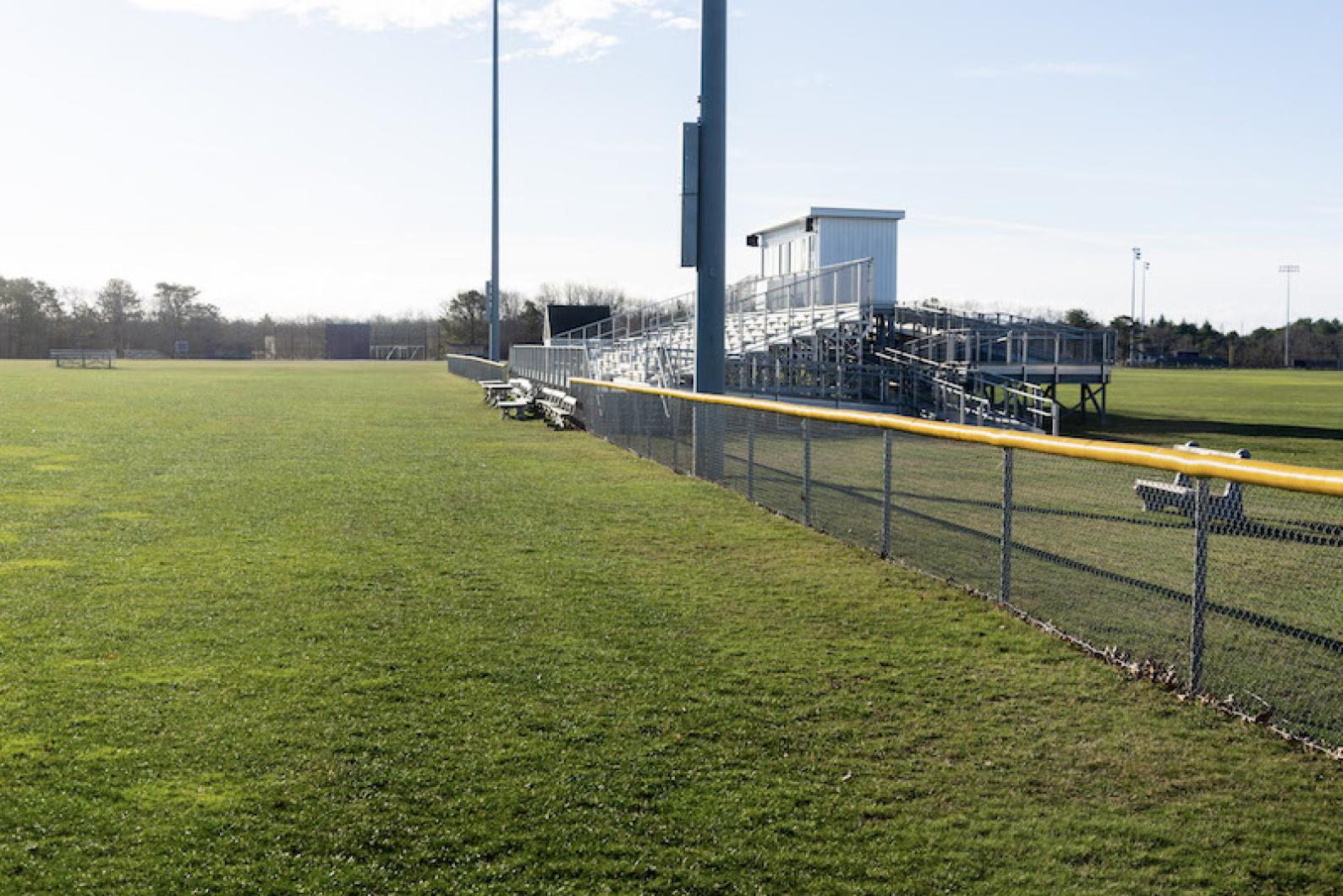A controversial $7.7 million project to overhaul the regional high school’s athletic fields is set to come before the Martha’s Vineyard Commission for its first public hearing this week, reigniting a long-simmering debate over artificial turf versus natural grass fields on the Island.
Four years in the making, the first phase of the project, which includes the construction of one synthetic turf field and one natural grass field, has generated dueling public awareness campaigns from both proponents and opponents since it was approved by the high school district committee in 2018.
The project was referred to the Martha’s Vineyard Commission as a development of regional impact by the Oak Bluffs planning board in early 2020.
A Zoom public hearing is scheduled for this Thursday, Jan. 14 at 7 p.m.
The commission has received a mountain of correspondence on the project, with hundreds of Islanders weighing in. The majority of the letter writers oppose the proposal, but many also support it.
The plan before the commission focuses on phase one of the project, which includes construction of a new, multi-purpose synthetic turf field and 400-meter track that would replace the existing football and soccer field at the front of the complex on the Edgartown-Vineyard Haven Road. The new field would be reoriented parallel to the road and include a new grandstand, concessions and bathroom facilities, as well as a 4,800-square-foot field house.
The field house would need approval from the Oak Bluffs wastewater commission to tie into the town treatment plant, according to commission staff reports.
Phase one also includes remodeling a second natural grass field located north of the Martha’s Vineyard Sharks field and stadium.
Overall, the project will be completed in multiple phases and include five additional remodeled grass fields and a new baseball field farther south on the property.
The project has the strong backing of high school athletes and their parents, coaches and staff, who say it is critically needed and long overdue as the athletic fields have suffered from decades of deferred maintenance — especially the track.
Critics point to the project’s cost, maintenance of the fields, the health and safety of artificial turf and environmental impacts of field disposal, lifespan and carbon footprint as concerns.
How the cash-strapped regional high school plans to pay for the project remains something of a mystery. Vineyard schools superintendent Matthew D’Andrea has said private fundraising will pay for the project, but he has provided no details.
The first phase of the project is estimated at approximately $4 million, according to previous statements from school officials.
The project architect is Chris Huntress of Andover-based Huntress Associates.
Tensions have run high since the project was initially aired in 2016, with proponents of natural grass fields and artificial turf fields clashing in public meetings for the better part of four years. Advocacy groups have organized on both sides of the issue. The Field Fund has installed and maintained natural grass fields at multiple Island elementary schools, including West Tisbury and Oak Bluffs, and is a strong opponent of turf fields. MV@Play is a group that formed early on to support synthetic turf.
In 2018, the high school committee hired Huntress as project designer and eventually settled on a plan that included both turf and grass fields. In early 2019 a divided school committee voted 5-4 at an overflow meeting to approve the current iteration of the project, with the main turf field, and five grass fields.
Written comments can still be submitted by emailing commission staff Lucy Morrison morrison@mvcommission.org or DRI coordinator Alex Elvin at elvin@mvcommission.org. The commission asks that those interested in testifying at the public hearing Thursday email commission staff beforehand.
Lucy Morrison's email has been corrected. The correct email is morrison@mvcommission.org.






Comments (19)
Comments
Comment policy »